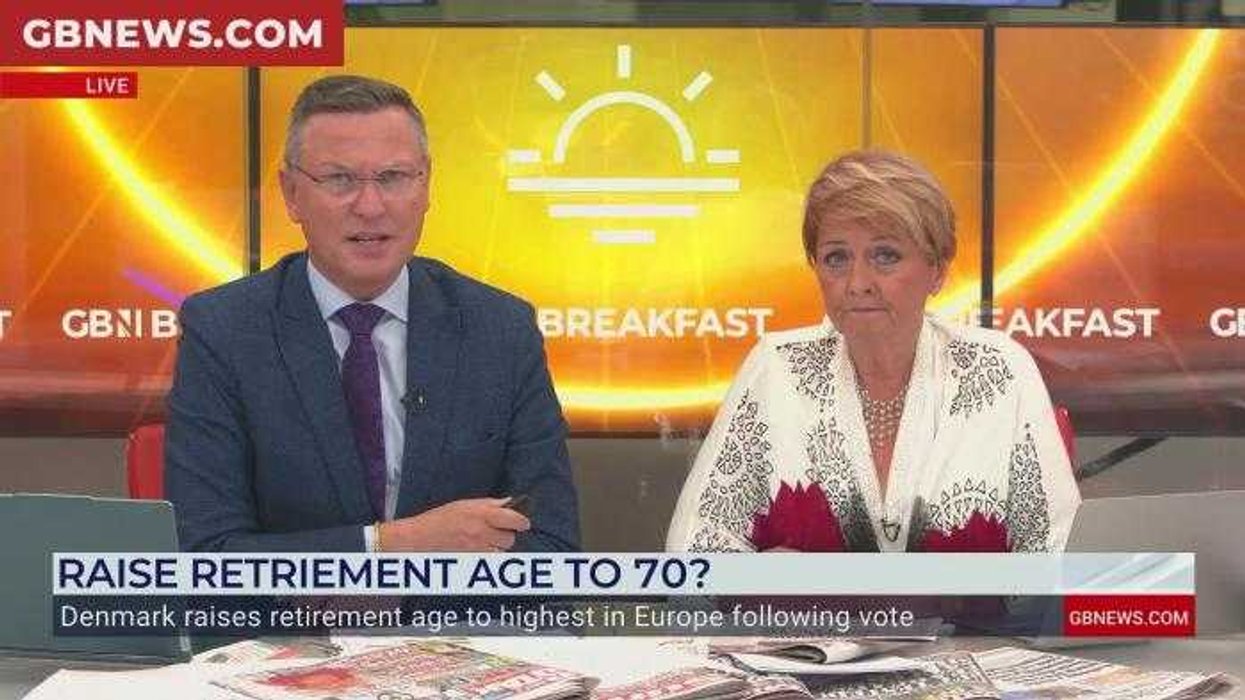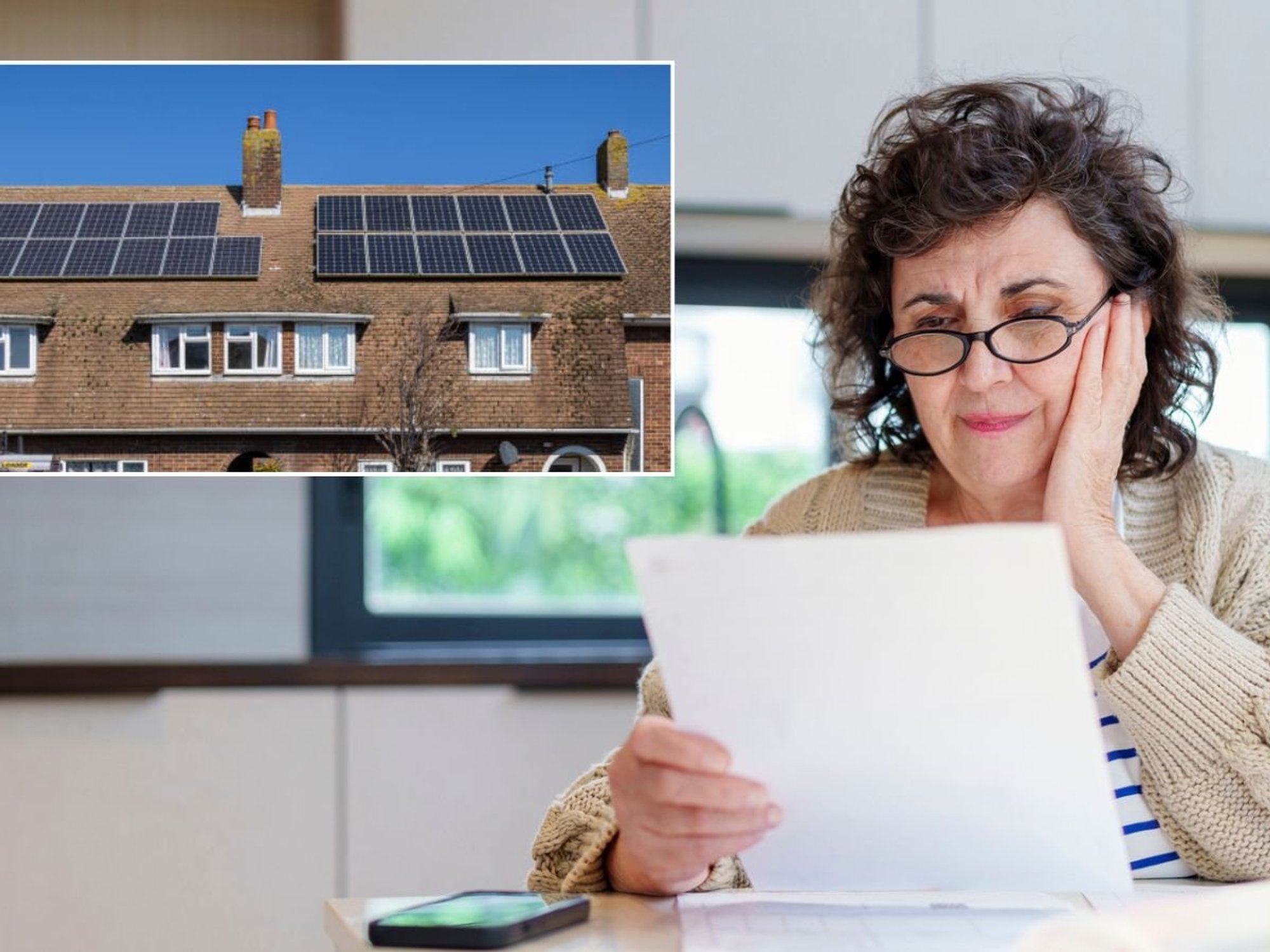State pension warning as retirees almost £600 worse off since 2020 despite triple lock boost

Retirees face shrinking spending power as incomes fall behind rising bills
Don't Miss
Most Read
Pensioners are seeing their finances fall behind despite regular increases to the state pension, new official figures show.
Even with the protection of the triple lock many retirees are finding it harder to keep up with everyday expenses.
Retired households now have a typical disposable income of £29,728 in 2023/24, down £558 a year compared with 2020/21, fresh data from the Office for National Statistics has shown.
The drop highlights how rising living costs have outpaced income growth, eroding the spending power of older households.
The figures shine a light on the growing financial pressure facing Britain's pensioners, who risk seeing their standard of living continue to slip unless incomes catch up with the cost of living.
The ONS statistics paint a concerning picture of retirees’ finances in recent years.
The median annual gross household income for retired people in 2023/24 edged up slightly to £32,328, compared with £32,302 the year before.
However, this is still well down on the £33,337 recorded in 2020/21, despite retired households consistently reporting gross incomes above £30,000 since 2013/14.
Disposable incomes show the same trend. The median rose by just £74 in 2023/24, increasing from £29,654 to £29,728. Yet this remains below both the £30,286 seen in 2020/21 and even the £29,853 recorded back in 2015/16.
Gross income is the total amount a retired household receives before tax and deductions, including pensions and investments. Disposable income is what’s left afterwards, the money pensioners actually have to cover everyday costs like food, bills and leisure.
Taken together, the figures mean gross incomes for retired households have fallen by £1,009 since 2020/21, while disposable incomes, the real measure of spending power, are £558 worse off than three years ago.
 Experts warn further price rises will hit the lower income pensioners most | GETTY/PA
Experts warn further price rises will hit the lower income pensioners most | GETTY/PADavid Brooks, Head of Policy at independent consultancy Broadstone, cautioned that pensioners' financial circumstances have "remained essentially stagnant, or even decreased, since the pandemic."
He highlighted two key factors behind this trend: the ongoing cost-of-living crisis and the shift towards less generous defined contribution pension schemes for new retirees.
"These trends both remain prevalent, suggesting that any move to means-test the State Pension or remove the Triple Lock could noticeably and negatively impact pensioners' incomes and, consequently, their standard of living," Brooks stated.
His warning comes amid continuing political debate over pensioner benefits, with some calling for reforms to the triple lock system that has protected State Pension values since 2011.

His warning comes amid continuing political debate over pensioner benefits
| GETTYThe analysis suggests that dismantling these protections could severely worsen retirees' already challenging financial position.
The Joseph Rowntree Foundation's analysis extends beyond pensioners to reveal a broader income crisis affecting all UK households. Their projections indicate that by parliament's end, typical disposable incomes will have fallen by £570 compared to current levels.
This represents a 1.3 per cent decrease that would mark the poorest living standards performance of any parliament since comprehensive records commenced in 1961.
The foundation's modelling suggests households face the prospect of an entire decade of declining disposable incomes, with a 0.5 per cent drop already recorded during the early 2020s.
Lower-income households face particularly severe impacts, with those in the bottom third of earners set to lose £1,110 annually by 2029, a 6.2 per cent reduction that will severely limit their ability to afford basic necessities.

The freeze on personal tax allowances compounds the financial pressure on retirees
| GETTYThe freeze on personal tax allowances compounds the financial pressure on retirees, with the State Pension now approaching the income tax threshold.
Mike Ambery, Retirement Savings Director at Standard Life, part of Phoenix Group, noted that the new State Pension will reach £12,534.60, leaving pensioners with merely £35.40 of additional income before becoming liable for taxation.
"In 2021/22 the new state pension was equivalent to 74 per cent of the allowance," Ambery explained, highlighting how the frozen £12,570 threshold until 2028 increasingly captures pension income.
For higher-rate taxpayers, the impact proves even more severe, with the £561.60 pension increase effectively reduced to approximately £337 after tax.
Mr Ambery also raised concerns about the State Pension's long-term viability, citing "rising life expectancy and a squeezed public purse" as factors potentially necessitating controversial reforms.











